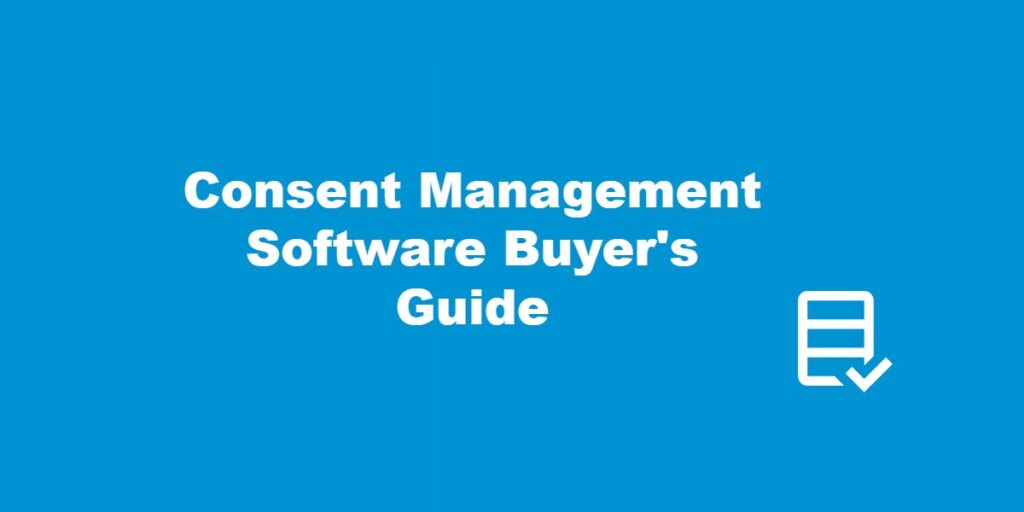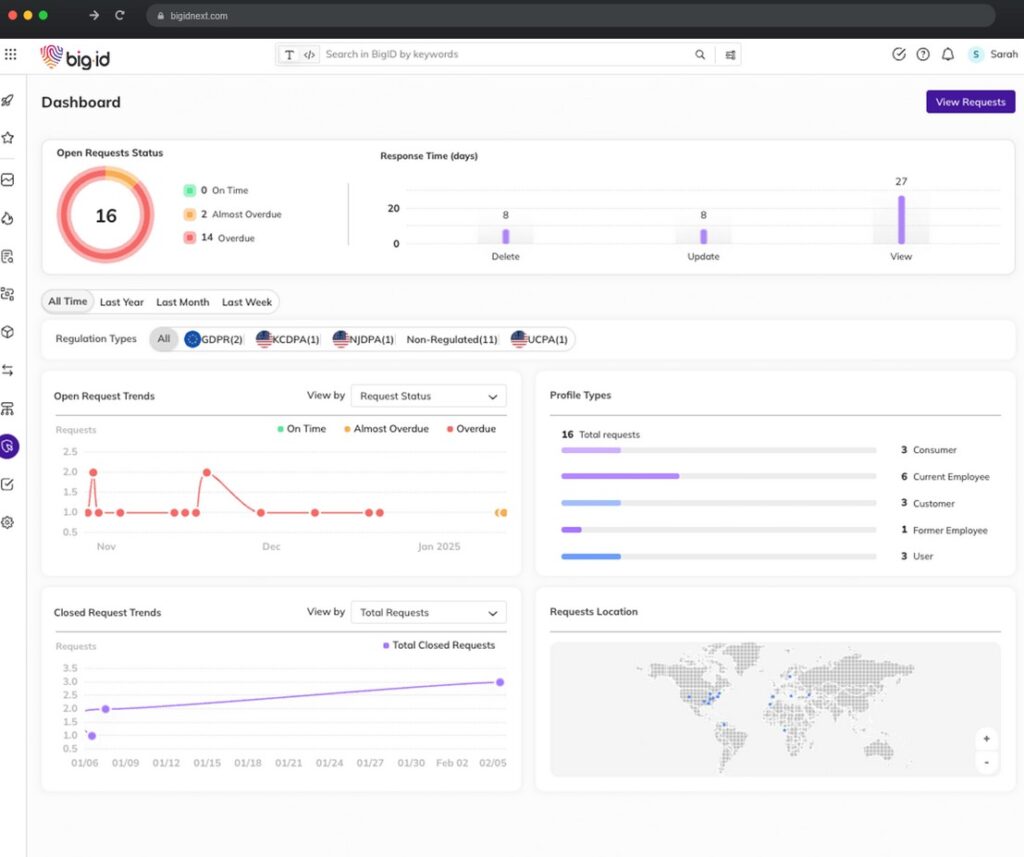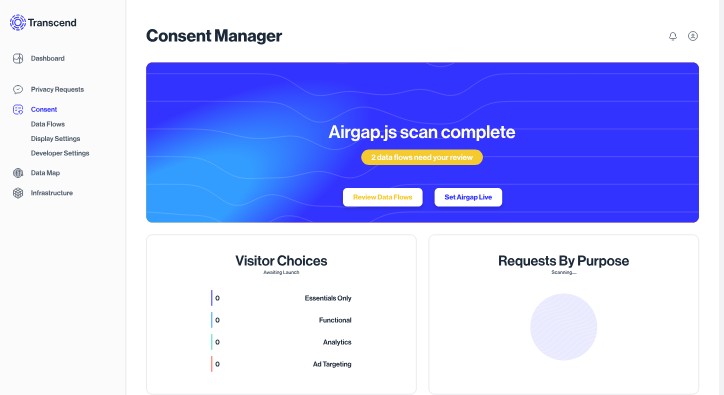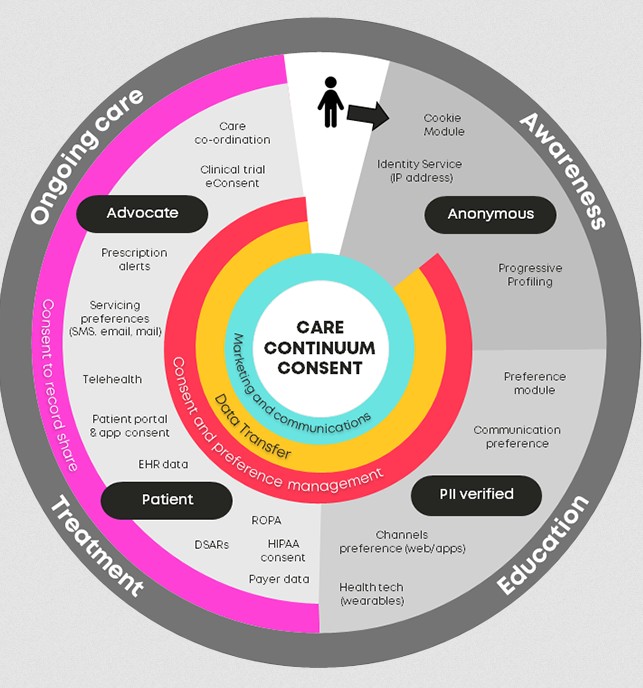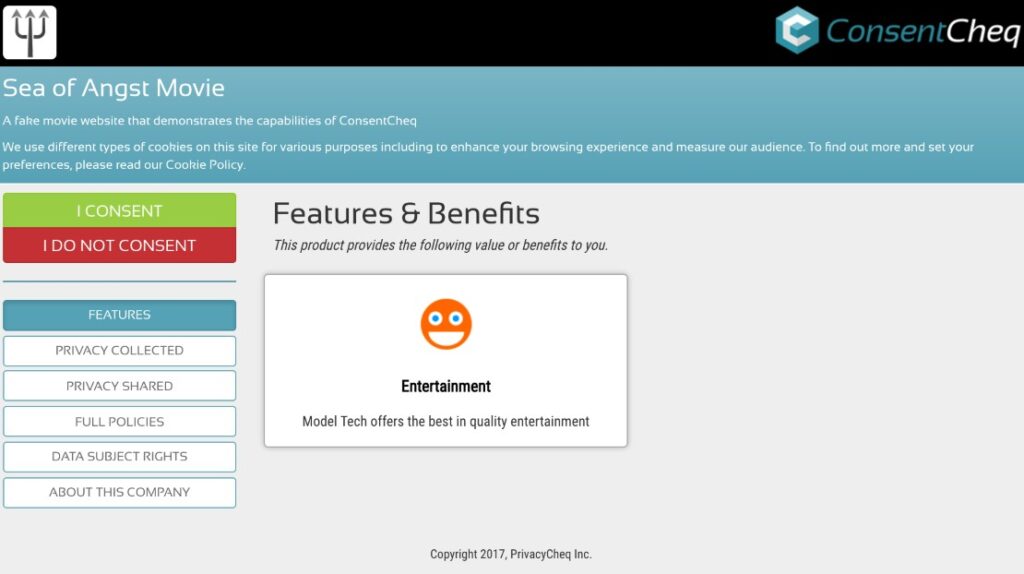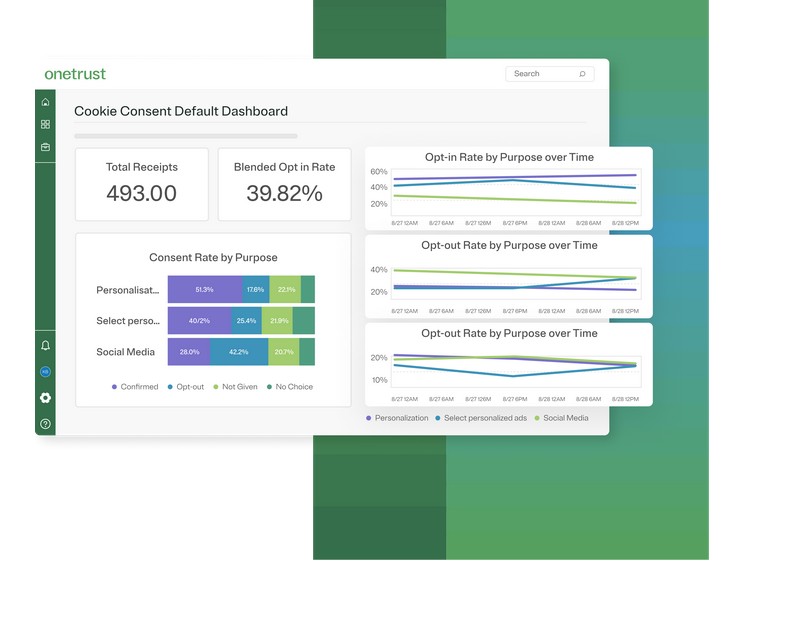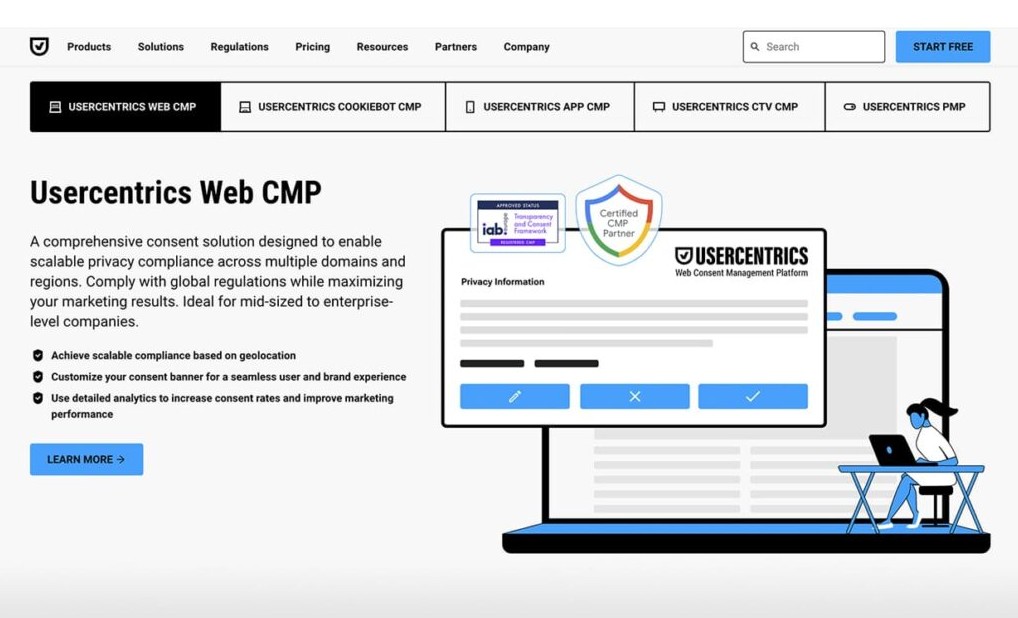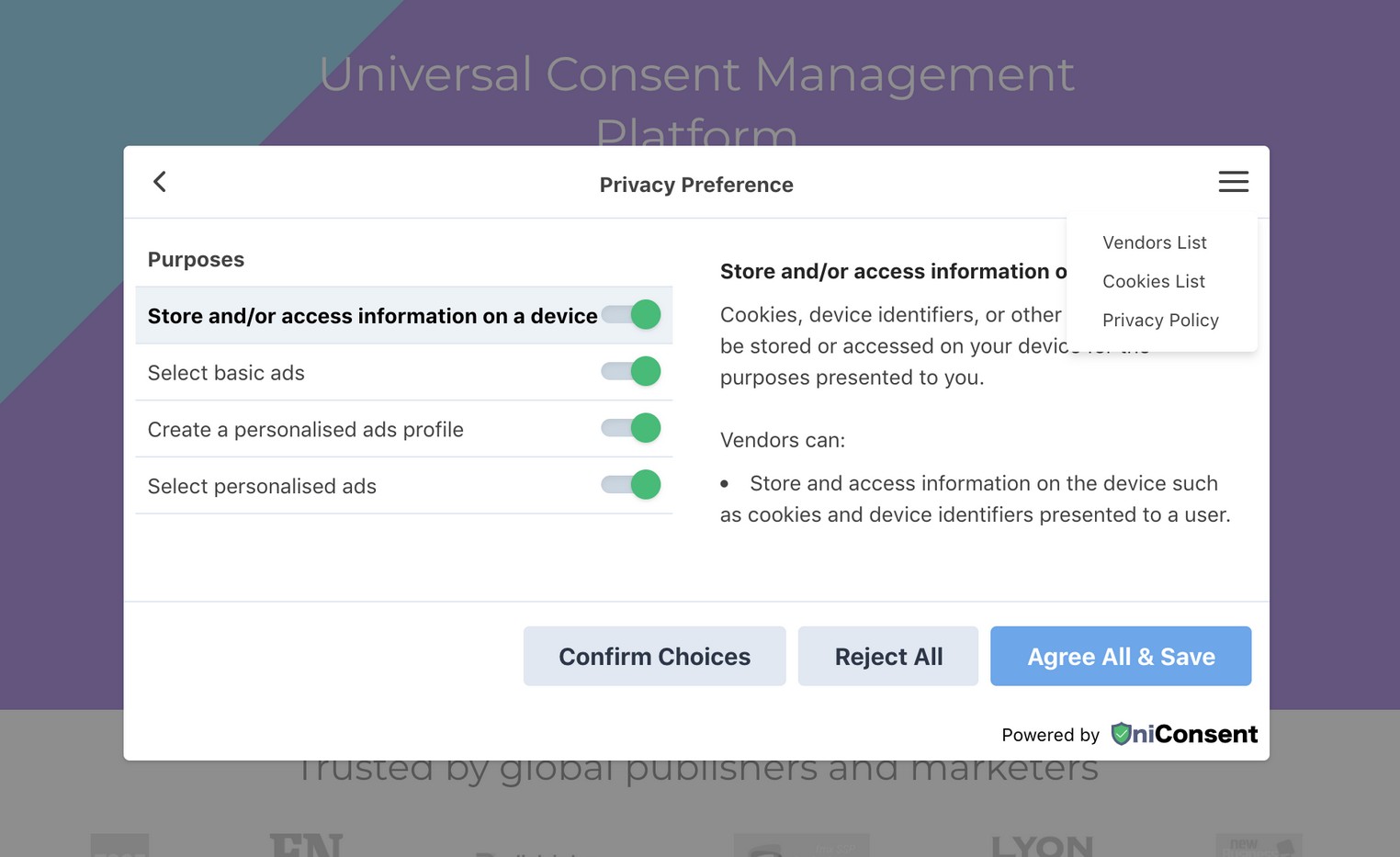Today, more people are worried about their privacy. A study among 10,000 adults across 10 countries shows that 80%of adults are worried about their privacy. From an organization’s standpoint, this translates to customer expectations and concerns about how the organization handles personal data. This concern about data privacy is further accentuated by the emergence of stringent guidelines like GDPR and CCPA that mandate organizations to take measures to protect the privacy of their customers.
Below are some of the best consent management software that can work well for almost any organization, regardless of its size and industry:
- BigID A CMP that uses advanced machine-learning algorithms and next-gen AI to provide a centralized view of your consent data.
- Transcend Consent A highly customizable consent management platform that automates the display and collection processes across all interfaces.
- Cassie A centralized consent management tool that can handle high-volume and complex consent data from anywhere in the world.
- ConsentIQ A SaaS tool that enables small businesses to implement privacy regulations and comply with GDPR requirements.
- OneTrust A universal consent and preference management platform that provides users complete control over their privacy.
- UserCentrics An easy-to-use platform to obtain, manage, and document your users’ consent for customer retention and compliance.
- UniConsent A lightweight CMP that’s well-suited for high-traffic websites and mobile apps.
A key component of data privacy is consent management. It is a set of processes that allow customers to decide if they want to share their data with a business. Often, the business has to state how it will use the customers’ data. Based on this information, individuals can choose to share their data. For example, article 7 of GDPR states that the organization must present the request for consent in an accessible form using clear and plain language. Also, the individual must understand the consent and explicitly agree to the processing of his or her data. More importantly, the user must have the option to withdraw consent at any time.
In other words, individuals knowingly consent to providing their data so that organizations can use them for specified purposes. This consent management is a cornerstone of data privacy, and organizations that fail to provide consent management can face heavy fines and penalties. To address this requirement, organizations use consent management platforms to collect and store consent from users seamlessly.
In this guide, we will talk about what are consent management platforms and what factors to consider while selecting the right one for your organization. Also, we will briefly talk about the popular consent management platforms available today.
What are Consent Management Platforms?
A Consent Management Platform (CMP) is software that displays your organization’s data usage and privacy policy, requests consent, collects it from users, and stores and handles this consent per the data protection laws. Moreover, the platform must always provide users the option to withdraw their consent at any time, as per GDPR requirements.
The advantage of using a CMP is that it automates the process and makes the entire consent management smooth and efficient. Also, it helps organizations meet the specified regulations with no additional resources.
Though different CMPs can have minor variations, they all are likely to have the following features.
- A consent banner containing the data processing policies of your organization is displayed to every visitor on your website or app.
- The banner will also explicitly request the user’s consent.
- The user will have the option to allow only a part of their data for processing.
- This software also stores these preferences to allow users to edit or withdraw them anytime.
- It provides an auditable trail of all consent-related activities.
Now comes an important question. If every CMP has similar features and implementation, how can you choose one over the other?
Read on to get the answer.
How to Choose a CMP?
While choosing a CMP, consider the following aspects.
Comprehensive and Full-Stack
There is a common misconception that consent is for cookies only. But the reality is that it extends all through your tech stack. Ideally, you’d want a tool that enforces consent preferences from the client interface to the backend processes, touching every connected system and data store. Such a comprehensive approach prevents non-compliance.
Focus on Notifications
Notifications are an essential part of consent management. Besides informing users about their content preferences, the tool must also ensure these details are present in the privacy policy. Sometimes, it even helps to have a pop-up window that clearly explains data processing.
User Experience
Though it is important to collect consent, your chosen tool must also consider user experience. It must provide a smooth flow and ensure that the user experience is not disrupted in any way. Also, the tool must have a single touchpoint to display and collect consent instead of popping a window now and then. Similarly, the tool must avoid repetitive banners.
Granular Control
Users must have the option to granularity control what aspects of their data are open for processing. Consent management must not be an allow-all or deny-all option, as this can impact user trust and business outcomes.
Continuous Visibility
Your chosen CMP must provide complete visibility into the consent gathering and handling processes. Staying on top of how these tools tag individual consent and handle requests for edits and deletes is key to ensuring compliance.
Reporting
Well-designed dashboards and out-of-the-box reporting templates help audit your consent management practices. Moreover, its audit trail and logging capabilities enable you to confidently manage consent across a global audience.
Scalable
Scalability is another key consideration. As you expand your digital footprint, the CMP must automatically cover them. This seamless scalability can ease your expansion while meeting compliance.
Thus, these are some features to look for while deciding on a consent management platform.
To further ease your efforts, we evaluated different tools on the above factors to create a list of the best ones.
Best Consent Management Software
Let’s take a detailed look at each of these tools:
1. BigID
BigID is a comprehensive consent management platform that uses advanced machine-learning algorithms and next-gen AI to create centralized views of your consent data. With this tool, you can manage, correlate, and protect your users’ right to consent. In the process, you can also comply with regulations like GDPR.
Source: BigID
Here’s a look at BigID’s features.
Comprehensive Views
With BigID, you can get a comprehensive view of enterprise data stored on both the cloud and on-premises. Moreover, you can track and view consent across systems and data sources. As a result, it’s easy to respond to DSAR requests as well.
Automated Processes
BigID automatically finds, classifies, and maps your sensitive data, including the consent collected from users. It automates the entire collection and management process to save time and effort for your organization. With such a streamlined approach, you ensure adherence to your privacy policies and compliance with the current and future regulations.
Breach Notifications
BigID provides breach notifications when there’s unauthorized access to the stored consent. It displays the breach in a separate window along with the context of the problem. Using this information, you can fix the underlying issues quickly.
Overall, BigID’s focus on data privacy and security can enhance compliance with GDPR’s consent management guidelines.
Pros:
- Automates data privacy.
- Easy to locate all consent data for DSAR purposes.
- Supports cookies and consent opt-in and opt-out.
- Implements data retention and deletion based on existing guidelines.
Cons:
- Steep learning curve.
- Complex setup process.
2. Transcend Consent
Transcend is a full-stack consent management platform that is fully customizable to meet your organization’s specific needs. The advantage of this tool is that you can use it to collect consent across all interfaces, from websites to mobile apps, providing uniformity across the entire consent-gathering process.
Source: Transcend
Scalable
One of the notable aspects of Transcend is its ability to scale well across global and complex implementations. Its customizable front-end UI makes it easy to create regional consent experiences with just a few clicks.
Intuitive Dashboards
Transcend’s intuitive dashboards provide detailed metrics into key aspects like user preferences, opt-out compliance rates, and the changes over time. You can use data visualizations and audit logs to check your compliance rates and make changes accordingly.
Widespread Support
Besides GDPR, you can use Transcend to honor the Global Privacy Control (GPC) signal that sends notifications when restricted data is processed downstream. Its out-of-the-box templates monitor such scenarios and reduce the risk of non-compliance.
In all, Transcend Consent offers complete coverage and visibility across all your global websites and applications.
Pros:
- No code deployment
- It will not break your website.
- Automates data deletion as per user’s instructions.
- Responsive customer support team.
Cons:
- Limited integrations.
- Training sessions can be helpful.
3. Cassie
Cassie is a comprehensive and scalable CMP that can support large data volumes based on a complex set of consent management policies. It also combines with preference management to customize and ease user actions. Moreover, it simplifies data management while enhancing user experience.
Source: Cassie
Single Source of Truth
Cassie centrally stores all consent-related data, and this centralized repository acts as a single source of truth for all data processing and compliance monitoring activities. With such a streamlined approach, you can quickly get the required data for further processing. Also, it is SOC 2-accredited, which means data privacy is at the core of its operations.
Accurate Records
Cassie accurately stores all records of PII collected from users after getting their consent. More importantly, you can get comprehensive visibility into the processing activities and any consent-related data to identify and manage privacy risks in real time.
Cookie Management
With Cassie’s cookie management feature, you can use multiple cookie banners to implement the required regulations. It protects you from ambiguous opt-ins that can lead to potential non-compliance.
Such features along with its integrations with more than 350 popular tools make Cassie a handy tool to manage your consent management.
Pros:
- Easy to integrate with multiple tools.
- Intuitive user interface.
- Highly compliant with GDPR.
- Excellent customer support.
Cons:
- Limited documentation and training.
- Reporting can be better.
4. ConsentIQ
ConsentIQ is a SaaS platform designed for small businesses that do not have a robust compliance budget and team. It is easy to use and addresses all the aspects required for GDPR compliance. Moreover, ConsentIQ supports multiple languages to provide consent and privacy notices for different regional customers.
Source: ConsentIQ
Below are some ways how ConsentIQ can help you become GDPR-compliant.
Easy to Use
As ConsentIQ is designed exclusively for small and medium businesses that have few resources for GDPR compliance, it is easy to use. With just three steps, you can have a consent management process in place that’s fully compliant with EU regulations. Also, you can use a simple WordPress plugin or a ConsentIQ-generated code snippet to include consent management on your website.
Multilingual Support
Another highlight of ConsentIQ is its support for multiple languages. With this option, you can ensure that language is not a barrier for customers to understand their rights in the consent process. Besides ensuring compliance, this feature can also increase trust and reputation in your customers’ minds.
Compliance
With ConsentIQ, you can comply with GDPR and ePrivacy regulations. You get unlimited privacy notices and a reporting module for showing compliance to regulators. Its admin dashboard provides insights into compliance and helps analyze gaps. Using this information, you can make the required changes to become compliant.
Overall, ConsentIQ is a handy tool for small and medium businesses that want to comply with GDPR but don’t have dedicated resources.
Pros:
- Designed for small and medium businesses.
- Unified interface
- Eases compliance
- Cost-effective.
Cons:
- Limited documentation and training.
- Not applicable for non-EU companies
5. OneTrust
OneTrust is a universal consent and preference management platform that provides users complete control over their data, consent, and preferences. It helps organizations provide complete visibility of data use to their customers for building trust and long-term relationships with them.
Source: OneTrust
Here’s a look at OneTrust’s consent management features.
Trusted Experience
OneTrust focuses on user experience and offers an intuitive way for your users to stay on top of their data. They have complete transparency across all your digital touchpoints and devices. Such an approach creates a sense of trust among users and lays the foundation for a long-term relationship.
Compliance with Global Laws
You can use OneTrust to gain compliance with global laws that mandate high privacy and user consent. With OneTrust, you can easily generate audit trails and reports to demonstrate compliance.
Cookie Consent
OneTrust detects all cookie trackers, tags, pixels, and others across all your websites to ensure compliance. You can also customize its out-of-the-box consent banners to meet your specific needs. Its pre-built MarTech integrations make it easy to integrate these banners with your websites.
In all, OneTrust creates a culture of transparency and openness to gain customers’ trust and meet compliance.
Pros:
- Highly customizable.
- Takes a customer-centric approach to consent management.
- It can be easily implemented across channels, domains, and devices.
- Bridges the gaps in consent management.
Cons:
- Limited integrations.
- Complex setup.
6. UserCentrics
UserCentrics is a comprehensive CMP that makes it easy to obtain, store, manage, and document your users’ consent. It also provides transparency for cookie tracking and usage on your websites, so your visitors can know how their data will be used. Such an open approach ensures compliance with GDPR and other privacy-related laws.
Source: UserCentrics
Here’s a look at UserCentrics’ consent management capabilities.
Extensive Compatibility
UserCentrics is compatible with a wide range of tools across analytics, A/B testing, tracking, retargeting, ads, hosting, social media, and more. Due to this compatibility, UserCentrics works well with any tech stack.
Minimal Legal Risk
This is a flexible platform that can be adapted to your legal strategy. With this tool, you can even go all out to make privacy breaches visible to everyone. Such an approach can protect you from the hefty penalties and fines that come with non-compliance.
User Trust
Today, gaining users’ trust is the hardest part of doing business. You can use UserCentrics to transparently explain why you are collecting data and how it will be used. Such honesty can resonate with your users and they can voluntarily opt in for consent.
Due to these features, UserCentrics can create new business opportunities while ensuring compliance and user approval.
Pros:
- Automatic web scans to keep track of new cookies and technologies.
- Effortless implementation.
- Good customer support
- You can automate the entire consent management system.
Cons:
- Documentation can be better.
- UI requires improvement.
7. UniConsent
UniConsent is a lightweight CMP that helps compliance with GDPR, CCPA, COPPA, LGPD, and more. It also simplifies compliance with global privacy and security laws. Moreover, it is certified for IAB TCF, Google Ad Manager, Cookie Auditing, and Google Analytics.
Source: UniConsent
Let’s now learn about UniConsent’s capabilities.
Cookie Discovery
UniConsent continuously scans websites to automatically discover new cookies and technologies that can impact user privacy. Moreover, the UI is highly customizable to suit different businesses, ranging from basic marketing to advanced data processing.
Analytics and Insights
A highlight of UniConsent is that it provides consent tracking and charts to gain a comprehensive understanding of the consent management system. Moreover, you can analyze this data for hidden insights. Also, you can export this data to Google Data Studio for further processing.
Data Privacy
Along with consent management, UniConsent also manages personal data privacy, website cookie consent, DASR requests, and more. You can even set notifications when the system identifies deviations, issues, and non-compliance.
Overall, UniConsent can safeguard and manage consent, resulting in seamless compliance with data privacy regulations.
Pros:
- User-friendly interface.
- Good customer support.
- Google-certified and hence can be used with Google products like Ad Manager and AdSense.
- Quick implementation.
Cons:
- More suited for digital publishers and marketing agencies.
- Does not comply with HIPAA regulations.
Thus, these are the best consent management software that is extensive, complies with multiple data privacy laws, and is user-friendly.
Final Thoughts
Consent management is an essential part of data privacy because it empowers users to know how their data is stored and used by an organization. Since it provides complete control to users, consent management is mandated by laws like GDPR, HIPAA, and more. Given the complexity of collecting, storing, and managing user consent, many organizations prefer to automate these processes using well-developed consent management software.
In this article, we looked at the criteria that can help you decide the right consent management software followed by a list of the best software in this space. We hope this information acts as a good starting point to pick an appropriate consent management tool.
